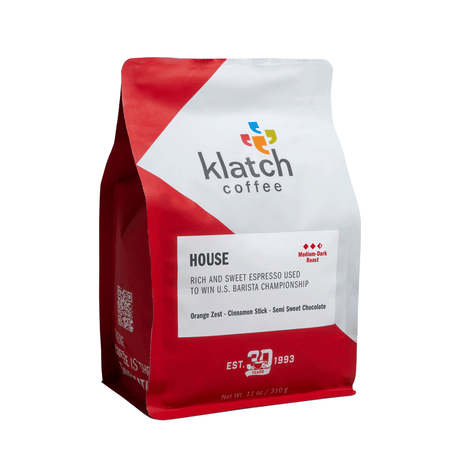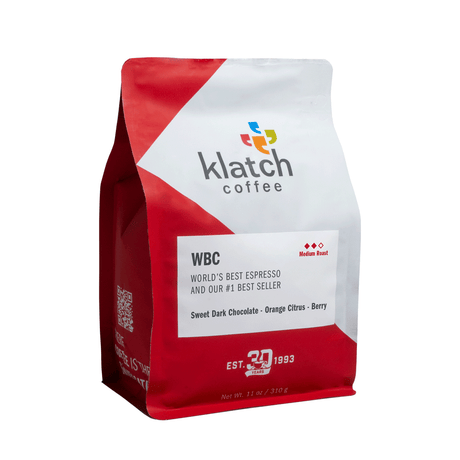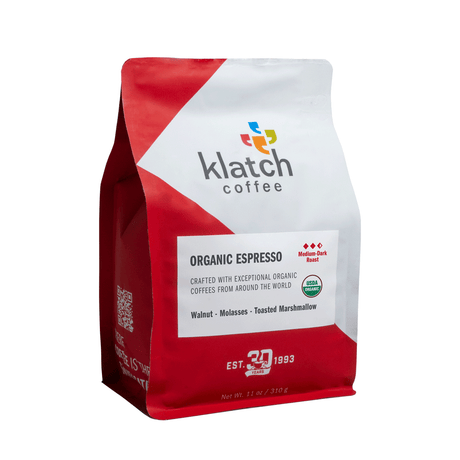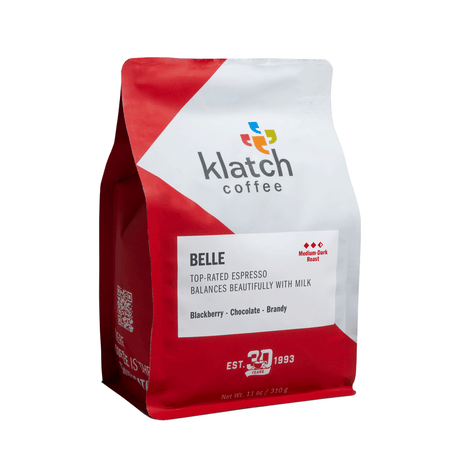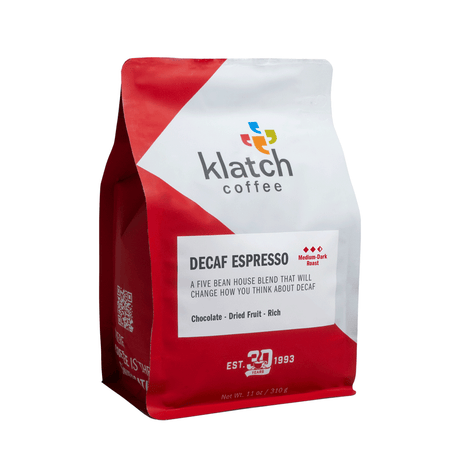ESPRESSO
Shop Klatch Coffee's award-winning whole bean espresso options. Our espresso selections include seasonal espressos as well as staples such as our Belle Espresso (rated 92/100 points by Coffee Review) and WBC, awarded "World's Best Espresso" at the World Barista Championships.
orange zest - semi-sweet chocolate - cinnamon stick
From $1695Unit price /Unavailablesweet dark chocolate - orange citrus - berry
From $1895Unit price /Unavailablecinnamon - wealth of nut - rich creamy body
From $1995Unit price /Unavailable

